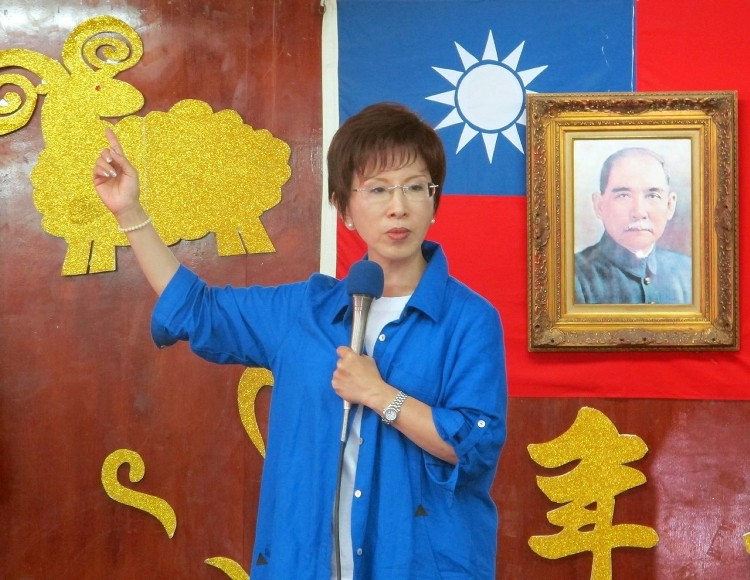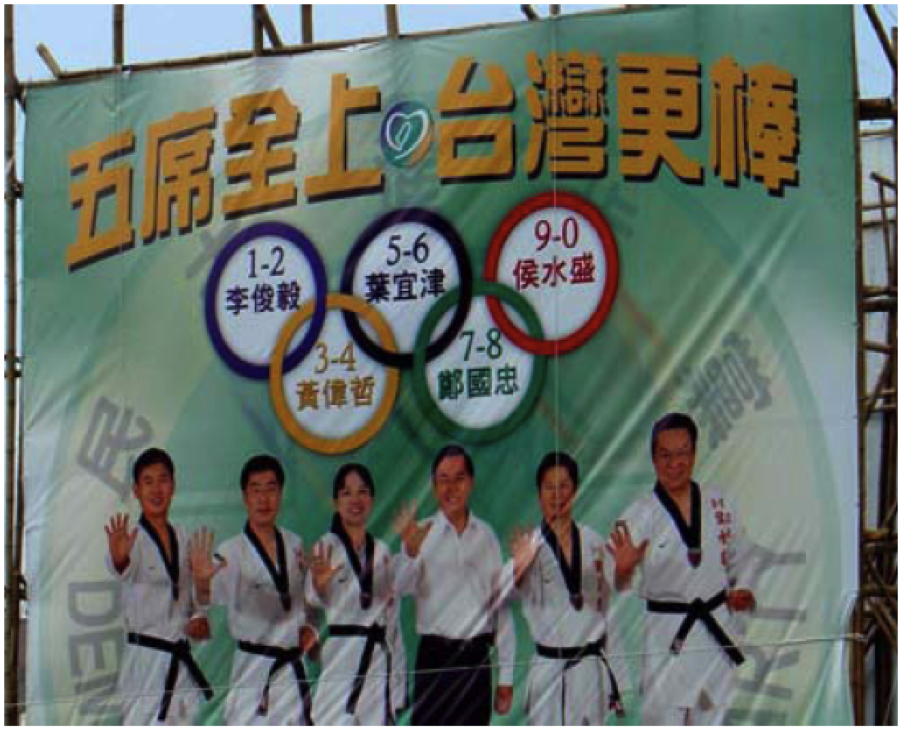But is it true? This anonymous article at Thinking Taiwan* attempts to make that case by examining her district vote totals in elections to the Legislative Yuan, which is the most concrete data we have about her electoral appeal. (Hung was elected as a KMT member from Taipei County in 1989, 1992, 1995, 2001, and 2004, and on the KMT party list in 1998, 2008 and 2012; the actual numbers are available here, from the Election Study Center at National Cheng Chi University.) Good for the writer for actually trying to supply some hard evidence for this claim, but in truth these results tell us very little about Hung's mass appeal.
The reason is that pre-2008 LY vote returns are from multi-member districts, and all the major parties used vote equalization (配票) systems in these elections. Vote totals for Hung or any other LY candidate nominated by a party can't be taken at face value as an indication of popularity. To imply otherwise is poor analysis.
A Quick Primer on Elections under Single Non-Transferable Vote
To see why, let's take a step back and remember how parties campaigned in these districts. Until 2008, elections to the legislature were held using the Single Non-Transferable Vote (SNTV) system. SNTV is defined by:
- Multi-member districts, i.e. more than one representative will be elected from a single district;
- Voters can cast only a single ballot for only one candidate (not a party, and not multiple candidates);
- The top M vote-getters all win a seat, where M is the number of seats in a district.
SNTV has a lot of features that make it unloved among electoral systems geeks, which is one of the reasons it was replaced for the legislature in Taiwan. (Nevertheless, it's still used for every other lower-level council election.) The most important is that it presents two serious coordination problems for the largest political parties, which increase in difficulty with the number of seats elected from a single district:
- A nomination problem. Parties have to estimate prior to the election how much support they have in the district to know how many candidates to nominate. Nominate too few, and your nominees all win but with many votes to spare, and all the extras could have won you another seat. Nominate too many, and your votes will be spread too thinly, leading in the worst-case scenario to a shutout when you could have won several seats. This gets harder the less information parties have about their level of support.
- A vote distribution problem. To maximize the expected number of seats they'll win, parties have to get their supporters to distribute their votes as evenly as possible across multiple nominees. This can be a real challenge if one or two candidates are much more popular and well-known. If voters cast their ballots sincerely, then popular nominees will win with thousands of votes to spare, while lesser-known candidates from the same party will be overshadowed and lose.
Political parties in Taiwan have developed a number of ways to deal with these problems so that they can maximize their seat share. The DPP's most common strategy has been to randomize the votes: the party instructs its core supporters to ignore the candidates' identities entirely and "randomly" vote for one of the DPP nominees.
- (1-2) Lee Jun-yi 李俊毅: 9.28%
- (3-4) Huang Wei-je 黃偉哲: 8.56%
- (5-6) Yeh I-chin 葉宜津: 6.64%
- (7-8) Cheng Kuo-chung 鄭國忠: 10.01%
- (9-0) Hou Shui-cheng 侯水盛: 10.09%
The randomization scheme is not a DPP innovation, by the way; the New Party also used this system in Taipei back when it was competitive. In general, the more ideological a party’s voters, the more appealing a randomization scheme is.
In contrast, the KMT traditionally employed “responsibility zones” (責任區) within the larger districts: each official nominee was assigned some areas (usually groups of wards or villages) that were their exclusive zones to campaign in, and they were not supposed to appeal to voters in other areas.** The KMT also would hold back some of their so-called “iron vote” (鐵票) precincts—typically villages filled with military personnel, civil servants, and their families who could be expected to loyally support the party en masse. In the days leading up to the election, if a couple of the party’s candidates appeared to be doing worse than expected, the party strategists would at the last moment direct some of the iron vote to them to bolster their chances of winning. The responsibility zone system was used widely by the KMT in the 1980s and 90s because it worked well and gave them a systematic advantage: the party could exploit the advantages of its connections to local factions, its superior knowledge of local support levels, and its almost complete control of local ward chiefs and vote-brokers.
So what do election results under this system tell us about Hung Hsiu-chu’s appeal as a candidate? Very little. Because the KMT imposed a vote distribution system in the LY elections, individual candidate vote totals are not a reliable indication of how popular the candidates are.
For instance, here’s her vote returns from the legislative election in Taipei County in 1992, by administrative area:
- Banqiao City: 2.33%
- Sanchong City: 0.89%
- Zhonghe City: 4.2%
- Yonghe City: 14.39%
- Xinzhuang City: 1%
- Xindian City: 4.52%
- Shulin City: 1.01%
- Yingge Township: 0.99%
- Sanxia Township: 1.55%
- Danshui Township: 2.08%
- Xizhi City: 1.06%
- Ruifang Township: 1.02%
- Tucheng City: 2.78%
- Luzhou City: 0.98%
- Wugu Township: 0.74%
- Taishan Township: 1.21%
- Linkou Township: 1.14%
- Shenkeng Township: 2.42%
- Shiding Township: 1.31%
- Pinglin Township: 3.95%
- Sanzhi Township: 1.37%
- Shimen Township: 0.91%
- Bali Township: 0.94%
- Pingxi Township: 1.59%
- Shuangxi Township: 0.56%
- Gongliao Township: 1.76%
- Jinshan Township: 0.68%
- Wanli Township: 2.43%
- Wulai Township: 5.82%
These results show Hung was much stronger in some areas than others (Yonghe, Zhonghe, Xindian, Wulai, and Pinglin stand out), but they don’t show where her responsibility zones were or if she needed help from the “iron vote.” If I had to guess, I'd say she was assigned to Yonghe and parts of the four other cities she was strongest in: they're all clustered together just south of Taipei. But we can't tell that from the returns; and they also tell us nothing about whether she over- or under-performed relative to expectations.
The one thing we can say from these figures is how the KMT itself did. The last winner in this district was Chou Po-lun (周伯倫) of the DPP, who got 2.65% of the vote. Hung got 3.04%. Of the 17 KMT candidates, not all of whom were nominated, 10 were elected, with vote shares ranging from 2.66% to 5.89%, and the KMT won 62.5% of the seats with 45.7% of the vote. From the KMT’s perspective, that was a terrific result, and Hung’s share of the vote was just about perfect: safely above the cutoff point, but not too much above that a lot of votes were wasted. That tells us that Hung, and most of the other elected KMT candidates, probably played by the party’s rules. What it does not tell us is that Hung had no mass appeal, because demonstrating that wasn't her objective in this (or any of the other) LY elections.
If critics want to cast Hung as a deep-Blue ideologue with no ability to win votes from moderates, fine. She hasn't shown that ability, it's true. But she also has never been asked to. Her past election results tell us very little about how she'll do as the KMT candidate for president.
**A fun aside: this is one of the best-studied topics in Taiwanese politics research. Among the prominent work on this is from the current chair of the Central Electoral Commission, Liu I-chou, who wrote his dissertation on the KMT’s responsibility zone system. Also, a big chunk of Shelley Rigger’s Politics in Taiwan, one of the best-known English-language books on Taiwanese elections, extensively covers party strategy in SNTV elections.


 RSS Feed
RSS Feed
